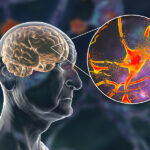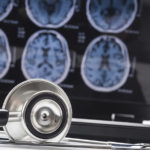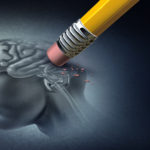By David Blyweiss, M.D., Advanced Natural Wellness
September 4, 2017
- Alzheimer’s starts much earlier than you think
- Why Big Pharma can’t protect you from mental decline
- Bigger brains are less likely to develop Alzheimer’s
Most people don’t worry about dementia until they start experiencing mental difficulties. This is a big mistake.
You see, diseases like Alzheimer’s start building long before symptoms appear. In fact…
- Sticky amyloid plaques start showing up as much as 25 years prior to Alzheimer’s symptoms.
- Elevated levels of tau appear 15 years before Alzheimer’s symptoms.
- Shrinkage in key brain structures begin occurring 15 years before symptoms
- Decreases in the brain’s use of the sugar glucose and slight impairments in a specific type of memory are detectable 10 years before symptoms
In other words, chances are good that these processes are already occurring in your brain. However, it doesn’t mean you’re doomed to memory loss and other cognitive problems.
But don’t count on Big Pharma to save you.
MD Exposes the Hidden Danger to Your Eyes

When your eyesight starts to fail, it's a real problem. Suddenly you can't go to the grocery store... you can't get to the doctor if you have an emergency... you can't meet your friends for dinner…
Your "regular" doctor doesn't have time to keep up with the latest research. And the same goes for eye doctors. They go to school to learn how to fit you for glasses and contacts, but have no way of preventing the damage and loss of eyesight that threatens your freedom and independence.
Let me show you something that explains a LOT about how your eyes work.
In my FREE Special Report, I'll show you a HUGE, untapped resource for your eyes that safely and naturally restores clear, effortless eyesight.
Click here to get started...
Big Pharma Can’t Protect You Against Alzheimer’s
Big Pharma is hard at work trying to develop Alzheimer’s drugs. The concept is simple. If they can make a drug that clears out amyloid plaque from the brain, it should cure the disease.
Well, if I were you I wouldn’t hold my breath waiting for one of these drugs to come save you. Clearing amyloid doesn’t work. In fact, when Eli Lily created a drug to kill off this plaque, the patient’s mental health deteriorated much more quickly!
There’s a good reason for this.
It turns out amyloid plaques may be a part of your body’s natural immune response against infection. In other words, these plaques are actually trying to protect the brain from an infectious agent – such as a bacteria or virus. This is why killing off the plaque can worsen the condition instead of improving it.
Now there’s nothing you can do to remove dormant Alzheimer’s-causing microbes like herpes simplex virus type 1 (HSV1 – the “cold sore” virus) and Chlamydia pneumoniae from your body. But that doesn’t mean you’re doomed to memory loss and other cognitive problems.
Bigger Brains are Less Likely to Develop Alzheimer’s
Are You Suffering From...
- Love handles and a pot belly
- Romance that isn't what it used to
- Forgetfulness and inattention
- Low (or no) strength and endurance
- A sex drive that's shifted into neutral...or worse
If so...you may have Mature Male Burnout. Click here to discover more about this unique condition and what you can do about it.
It turns out that people who have more cognitive reserves (larger brain sizes and stronger neuronal connections) are less likely to develop Alzheimer’s disease, even if they have biomarkers for it.
Some research even suggests cognitive reserves can prevent the cascade leading to Alzheimer’s in the first place.
This makes it extremely important to do everything you can to start boosting your brainpower and building up these reserves as soon as you can.
There are several ways to do this:
Stimulate your brain to strengthen neuronal connections. Simple ways to do this include learning a new skill, playing brain games, taking up a foreign language or learning to play musical instrument.
Take the road less traveled. It might not sound like much, but even varying your routes every day can help stimulate your brain. Take a different route every time you go to the grocery store or doctor. Vary the path you take on your evening walks. Travel to someplace you’ve never been before and spend plenty of time exploring the area.
Work on your weaknesses. If you always do things you’re good at, you never give your brain the chance to flex its muscle-power. So consciously look for things that you’re not at ease doing or just bad at, and then take the time to learn them… never underestimate the feeling and the real and measure-able improvement accompanying some achievement. It can be as simple as learning how to cook like a top chef or as difficult as mastering the art of photo or video editing. New thinking necessitates new neuronal networks.
Stay socially active. People who are socially isolated tend to lose mental connections much more quickly than those who are active. So make efforts to spend time with anyone who can challenge your brain with new ideas and concepts. This is a fun way to learn new things while helping your brain build new connections and memories.
Get plenty of exercise every day. A good workout can nourish your neurons, decrease beta amyloid plaques and increase the size your brain’s hippocampus. All of these are necessary for a fully functioning brain.
Exercise also increases something called BDNF, brain derived neurotrophic factor. This protein encourages the growth of new neurons and improves their function. It also enhances synaptic activity, so your brain can make the right connections more easily and readily.
SOURCES:
Bateman RJ, Xiong C, Benzinger TL, et al. Clinical and biomarker changes in dominantly inherited Alzheimer’s disease. N Engl J Med. 2012 Aug 30;367(9):795-804.
Lo RY, et al. Effect of cognitive reserve markers on Alzheimer pathologic progression. Alzheimer Dis Assoc Disord. 2013 Oct-Dec;27(4):343-50.
Head D, et al. Exercise Engagement as a Moderator of the Effects of APOE Genotype on Amyloid Deposition. Arch Neurol. 2012 Jan 9.
Erickson KI, et al. Exercise training increases size of hippocampus and improves memory. Proc Natl Acad Sci U S A. 2011 Feb 15;108(7):3017-22.







